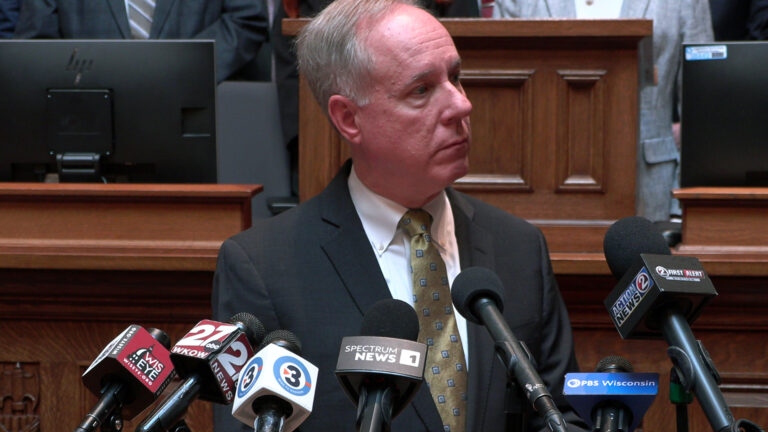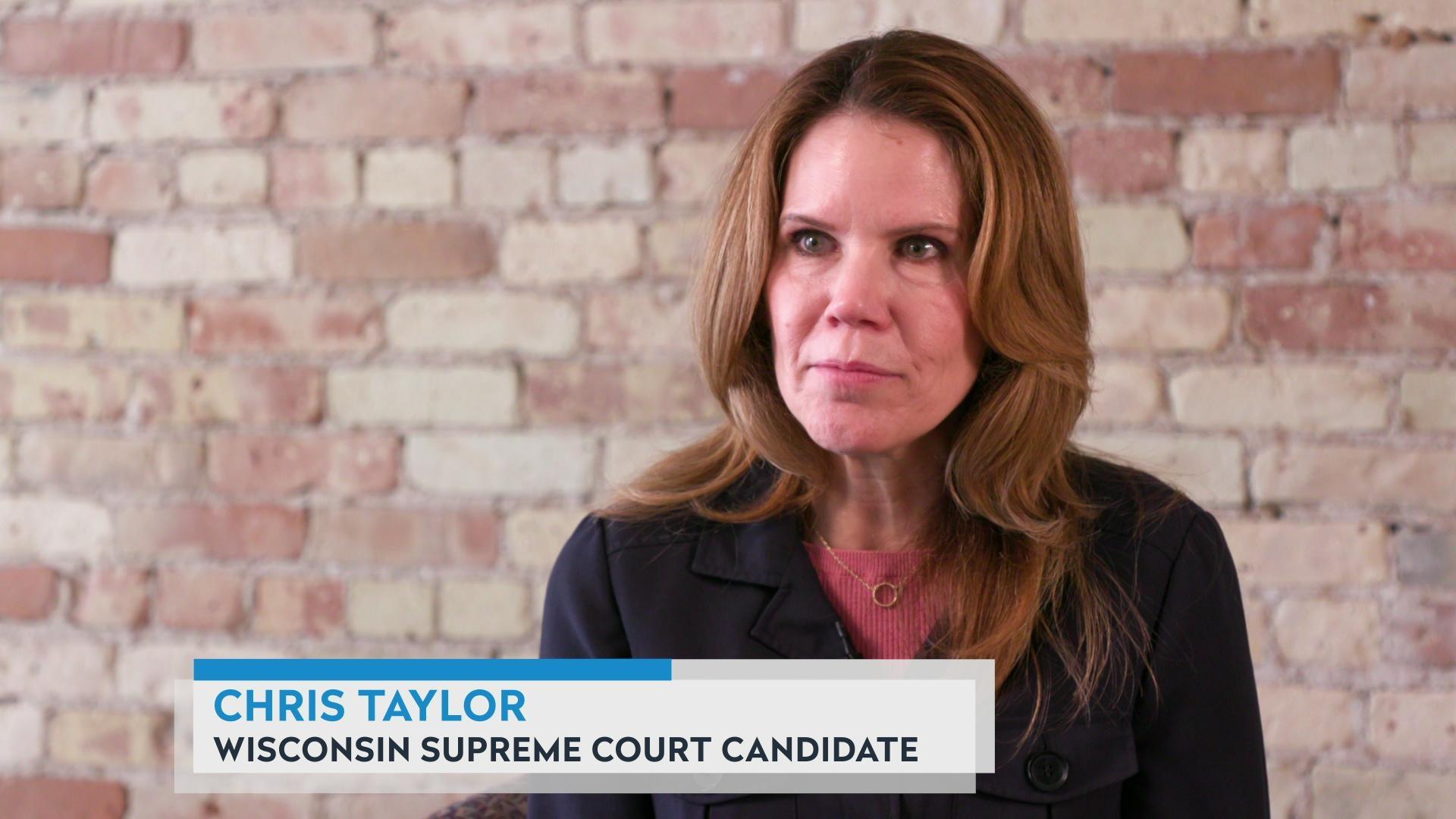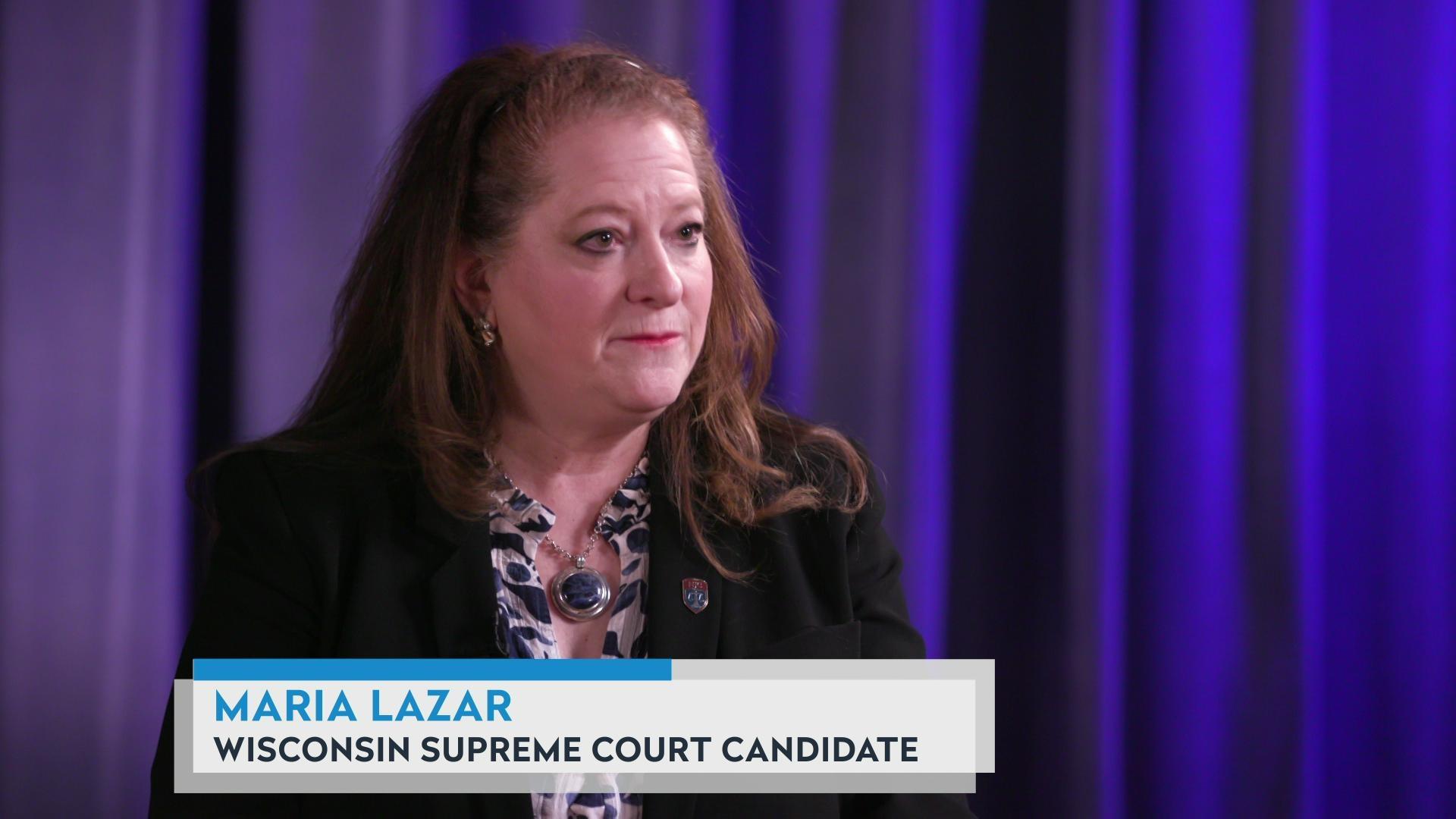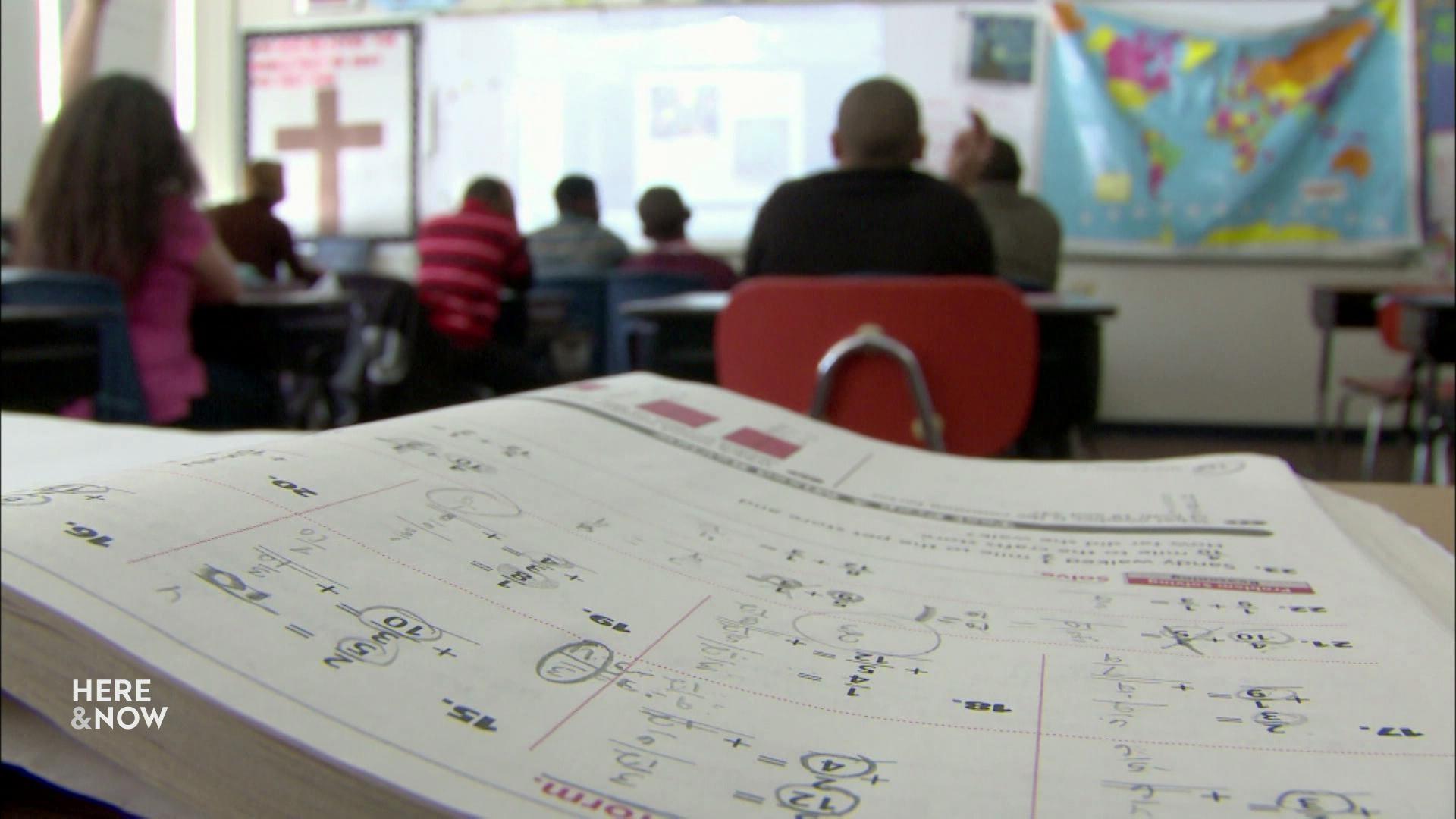Charles Franklin on the decline of policy-focused politics
Marquette Law School Poll Director Charles Franklin discusses his views on polling as candidates focus less on policy proposals, voters become more polarized, and civic engagement and trust decline.
By Marisa Wojcik | Here & Now
October 9, 2024
VIDEO TRANSCRIPT
Marisa Wojcik:
Has your view of your work, and how you do it, how you think about people's behavior — has anything changed, kind of...
Charles Franklin:
Yeah.
Marisa Wojcik:
...generally over time or very recently?
Charles Franklin:
I think that we've shifted in recent years to a less policy-focused discussion in campaigns, state as well as national level. There's certainly group interests that get represented in campaigns, but I guess I'm a little bit of a policy wonk. I want to hear about your economic plan, and what the details of that are — your public health plan, or your foreign policy plan. And I think over the last 12 years, let's say, since we started the Marquette poll, there's been some lessening of the policy focus of campaigns, going for broader image and impression — give you the feel for what our policies are, but not be expected to define those policies in any kind of detail. And ironically, this year, with Project 2025, you start to see why a campaign wouldn't want to do that, because Project 2025 wrote down 900 pages of specific plans. You might like them, you might not like them, but those were specific proposals out there, and Donald Trump has been disavowing any connection with that. That does show the sort of peril of being too specific about what you're going to do, and I think the Harris campaign has yet to be very specific about details, and the Trump campaign is not very specific about its details either. And I do think that's a difference from 2012 or 2008. I don't mean we were always high-minded and publishing white papers for the campaign, but I do think we've moved a little more to feelings and impressions, and general feelings about issues, and not so much a serious debate about serious problems.
Marisa Wojcik:
What do you attribute to that?
Charles Franklin:
I think it's electoral self-interest more than anything. With Project 2025, you see the downside of being too specific. I think as we've also moved to a more polarized electorate, where routinely now 95% of Republicans vote Republican and 95% of Democrats vote Democratic. This is a far cry from when people could go to the voting booth and give big majorities to Tommy Thompson and Herb Kohl on the same Election Day. We don't cross over very much anymore. We don't really consider the other side's arguments that might be appealing. And there are reasons for that. The parties have moved apart, and so there is less common ground that voters could see and choose between. Starting in the early 2000s, we saw parties more and more focus on mobilizing their base voters — their strongest, most committed voters — and the game being maximize the turnout of those people, rather than try to win over people in the middle. And the logic is pretty compelling. If you can get one of your core supporters to vote, you're virtually guaranteed of getting that vote. But if you are very successful at convincing an independent to vote for you, you may only have a 60% chance of getting their vote. And so the force of the logic of this pushes campaigns to focus on their base, and to some extent not to do as much as they may have once done to try to win over the not huge number of people, but the important number of people that are more convincible.
Marisa Wojcik:
Does that explain Tammy Baldwin and Ron Johnson?
Charles Franklin:
I think, to some extent, it does. Baldwin in particular is notable for her efforts to campaign in parts of the state that Democrats don't usually win, including rural parts of the state, where, again, Democrats haven't been doing very well, and it's paid off for her. She may or may not win those areas, but she loses them by a lot less, and that helps her win statewide. I think Ron Johnson has been an interesting example of a candidate who in both 2016, and again in 2022, entered the race behind, and with his favorability numbers upside down, more unfavorable than favorable, but in both of those campaigns, built support steadily through the campaign to end up winning by a little bit in 2016, and by a tiny bit in 2022. So I think both of those campaigns from such different political perspectives have succeeded not in sweeping the middle, but in doing well enough in the middle to still sustain their campaign.
Marisa Wojcik:
What other kind of takeaways would you want people to have?
Charles Franklin:
I think a bigger long-term issue is the decline of civic engagement, and trust in government, and trust in the political process, and this is hardly a new thing. Those numbers have been getting worse since the 1960s, and continue to do so. So we have a significant segment of the population that is very skeptical about government, skeptical about government's ability to do anything, to improve conditions, and a lot of distrust of political actors. That includes the media, it includes pollsters, places that you might have gone to for information you thought was trustworthy. That has gotten a lot worse over the last 30 or 40 years, but it's also gotten worse over the last 10 years. I think that is one of the mechanisms that is making politics more brutal, but also making it more difficult for us to find solutions to our problems. There's a host of problems that a little bit of old-fashioned horse-trading between the parties could at least address some elements of those disagreements, but it seems like we're in an era where that kind of bargaining hardly takes place at all.
 Passport
Passport











Follow Us